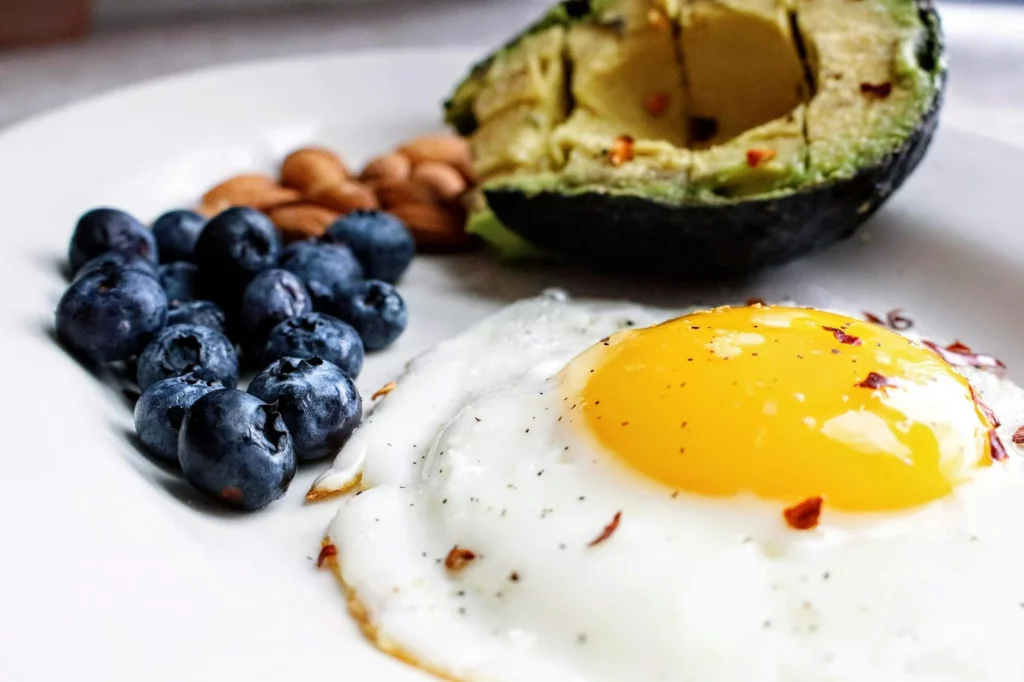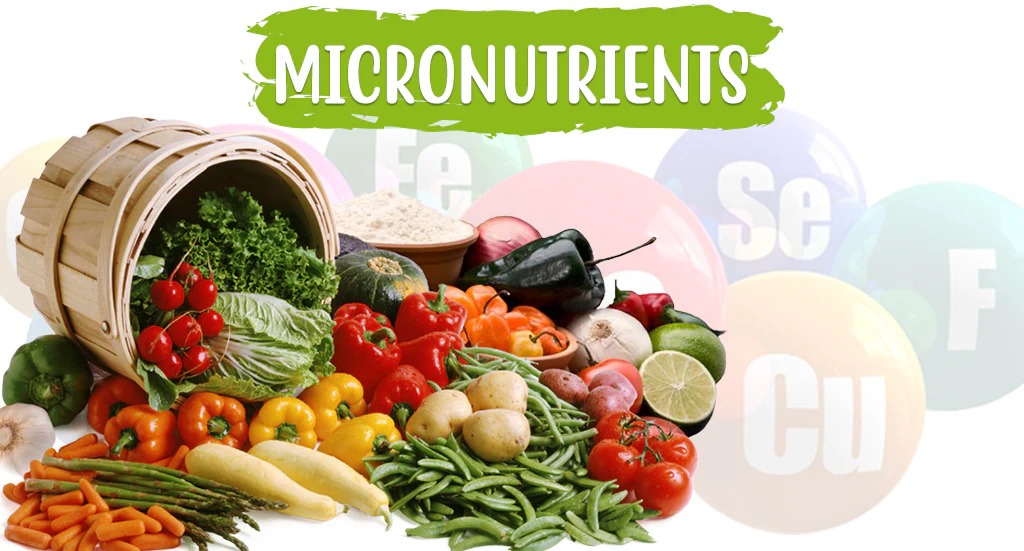Are you an athlete looking to take your performance to the next level? 🏃♀️🏋️♂️ The secret might be hiding in your plate! Proper nutrition is the unsung hero of athletic success, often overlooked but incredibly powerful. Whether you’re a weekend warrior or a professional competitor, what you eat can make or break your performance.
But with so much conflicting information out there, it’s easy to feel overwhelmed. Should you load up on carbs? Go high-protein? What about those trendy supplements? Don’t worry – we’ve got you covered! In this blog post, we’ll dive into 9 amazing nutrition tips that can help athletes of all levels fuel their bodies for success. From prioritizing energy-boosting carbohydrates to timing your meals perfectly, we’ll explore the essential elements of a winning athlete’s diet. Get ready to supercharge your performance and leave your competition in the dust! 💪🥇
Introduction

Brief overview of the importance of nutrition for athletes
Athletes push their bodies to the limit, making proper nutrition crucial for optimal performance and recovery. A well-balanced diet provides the necessary fuel for training, competition, and overall health. Nutrition plays a vital role in:
- Energy production
- Muscle recovery and growth
- Injury prevention
- Immune system support
Mention how proper nutrition can improve performance, recovery, and overall health
Proper nutrition can significantly impact an athlete’s success:
| Aspect | Benefits of Proper Nutrition |
|---|---|
| Performance | Increased endurance, improved strength, enhanced focus |
| Recovery | Faster muscle repair, reduced soreness, improved sleep quality |
| Overall Health | Stronger immune system, better bone density, reduced risk of injuries |
Highlight the focus of the article on providing actionable nutrition tips for athletes
This article will provide practical, evidence-based nutrition tips that athletes can easily implement into their daily routines. We’ll cover essential topics such as:
- Carbohydrate intake for energy
- Hydration strategies
- Protein requirements for muscle repair
- Healthy fats for endurance
- Meal timing and snack ideas
- Micronutrient importance
- Supplement guidance
- Post-exercise nutrition
By following these tips, athletes can optimize their nutrition to support their training goals and achieve peak performance. Now, let’s dive into our first topic: the importance of carbohydrates in an athlete’s diet.
Prioritize Carbohydrates for Energy

A. Explanation of carbohydrates as the primary fuel source for athletes
Carbohydrates are the body’s preferred energy source, especially for athletes. They are quickly broken down into glucose, providing readily available fuel for high-intensity activities. During exercise, muscles primarily rely on glycogen, the stored form of carbohydrates, to power through workouts and competitions.
B. Recommended sources: whole grains, fruits, vegetables, and legumes
Athletes should focus on consuming nutrient-dense carbohydrate sources:
-
Whole grains: brown rice, quinoa, oats
-
Fruits: bananas, apples, berries
-
Vegetables: sweet potatoes, broccoli, spinach
-
Legumes: lentils, chickpeas, black beans
These foods not only provide energy but also offer essential vitamins, minerals, and fiber for overall health and performance.
C. The role of complex vs. simple carbs
| Complex Carbs | Simple Carbs |
|---|---|
| Slow-release energy | Quick energy boost |
| Sustained performance | Short-term fuel |
| Better blood sugar control | Rapid blood sugar spike |
| Examples: whole grains, vegetables | Examples: sports drinks, fruit |
Complex carbs are ideal for daily nutrition and pre-workout meals, while simple carbs can be beneficial during or immediately after intense exercise.
D. Best times to consume carbs (before and after workouts)
For optimal performance, athletes should strategically time their carbohydrate intake:
-
Pre-workout: Consume complex carbs 2-3 hours before exercise
-
During exercise: Simple carbs for sessions lasting over 60 minutes
-
Post-workout: Mix of simple and complex carbs within 30 minutes
-
Daily meals: Include complex carbs for sustained energy
Now that we’ve covered the importance of carbohydrates, let’s explore another crucial aspect of athletic nutrition: hydration.
Stay Hydrated for Peak Performance

The critical role of hydration in athletic performance
Proper hydration is fundamental to an athlete’s success, directly impacting both physical and mental performance. Water plays a crucial role in regulating body temperature, transporting nutrients, and maintaining optimal organ function during exercise.
How dehydration affects physical and cognitive performance
Dehydration can lead to:
-
Decreased endurance
-
Reduced strength
-
Impaired cognitive function
-
Increased risk of heat-related illnesses
| Dehydration Level | Performance Impact |
|---|---|
| 1-2% | Thirst, reduced performance |
| 3-5% | Decreased endurance, cramping |
| >5% | Heat exhaustion, potential organ failure |
Hydration tips: drinking before, during, and after exercise
-
Pre-exercise: Consume 16-20 oz of water 2-3 hours before activity
-
During exercise: Drink 7-10 oz every 10-20 minutes
-
Post-exercise: Replenish 16-24 oz for every pound of body weight lost
Importance of electrolytes and hydration drinks
Electrolytes are essential for maintaining fluid balance and muscle function. Options include:
-
Coconut water: Natural source of potassium and magnesium
-
Sports drinks: Provide carbohydrates and electrolytes
-
Homemade electrolyte drinks: Combine water, salt, and natural sugars
Now that we’ve covered the importance of hydration, let’s explore the role of protein in muscle repair and growth.
Protein for Muscle Repair and Growth

The role of protein in muscle recovery and growth
Protein plays a crucial role in an athlete’s diet, serving as the building blocks for muscle repair and growth. After intense physical activity, muscles experience micro-tears, and protein helps repair this damage, leading to stronger and more developed muscles over time.
Recommended protein sources
Athletes should incorporate a variety of protein sources into their diet:
| Protein Source | Examples |
|---|---|
| Lean meats | Chicken, turkey, lean beef |
| Fish | Salmon, tuna, cod |
| Eggs | Whole eggs, egg whites |
| Plant-based | Tofu, beans, lentils, quinoa |
Optimal protein intake for athletes
The optimal protein intake for athletes depends on various factors, including:
-
Body weight
-
Type of sport
-
Training intensity
-
Overall calorie intake
How much protein should athletes consume based on activity level
Athletes’ protein needs vary based on their activity level:
-
Endurance athletes: 1.2-1.4 g/kg of body weight per day
-
Strength athletes: 1.4-2.0 g/kg of body weight per day
-
Team sport athletes: 1.2-1.7 g/kg of body weight per day
It’s important to distribute protein intake evenly throughout the day, consuming 20-30 grams of high-quality protein every 3-4 hours. This approach helps maximize muscle protein synthesis and supports optimal recovery and growth.
Now that we’ve covered the importance of protein, let’s explore the role of healthy fats in an athlete’s diet and how they contribute to endurance and overall performance.
Healthy Fats for Endurance and Performance

Importance of healthy fats for prolonged energy and joint health
Healthy fats play a crucial role in an athlete’s diet, providing sustained energy and supporting joint health. Unlike carbohydrates, fats are slow-burning fuel sources, making them ideal for endurance activities. They also help lubricate joints, reducing the risk of inflammation and injury during intense training sessions.
Recommended sources: avocados, nuts, seeds, olive oil, fatty fish
Incorporating a variety of healthy fat sources ensures a well-rounded nutrient profile:
| Fat Source | Benefits |
|---|---|
| Avocados | Rich in monounsaturated fats, potassium, and fiber |
| Nuts | High in omega-3s, protein, and antioxidants |
| Seeds | Packed with minerals and essential fatty acids |
| Olive oil | Contains anti-inflammatory properties |
| Fatty fish | Excellent source of omega-3s and lean protein |
How fats help with vitamin absorption and overall cellular function
Healthy fats are essential for:
-
Absorbing fat-soluble vitamins (A, D, E, K)
-
Maintaining cell membrane integrity
-
Supporting hormone production
-
Enhancing brain function
Balancing fat intake with carbs and protein
While fats are crucial, balance is key. Aim for:
-
20-35% of total calories from healthy fats
-
Adjust based on training intensity and individual needs
-
Combine fats with complex carbs and lean proteins for optimal performance
Now that we’ve covered the importance of healthy fats, let’s explore how to time your meals and snacks for maximum athletic performance.
Timing Your Meals and Snacks

Importance of meal timing for maximizing energy and recovery
Proper meal timing is crucial for athletes to optimize performance and recovery. By strategically planning when to eat, athletes can ensure a steady supply of energy during workouts and competitions, while also promoting efficient recovery afterward.
| Meal Timing | Benefits |
|---|---|
| Pre-workout | Provides energy for exercise |
| During workout | Sustains performance |
| Post-workout | Aids in recovery and muscle repair |
Pre-workout meals: best foods to fuel up before exercise
Consuming the right foods before a workout can significantly improve performance. Ideal pre-workout meals should be:
-
Rich in complex carbohydrates
-
Low in fat and fiber
-
Easily digestible
Some excellent pre-workout meal ideas include:
-
Oatmeal with banana and honey
-
Whole grain toast with peanut butter
-
Greek yogurt with berries and granola
Post-workout meals: replenishing nutrients to speed up recovery
After exercise, it’s crucial to replenish glycogen stores and provide protein for muscle repair. A balanced post-workout meal should include:
-
High-quality protein sources
-
Complex carbohydrates
-
Antioxidant-rich foods
Ideal snack ideas for athletes throughout the day
Snacking between meals helps maintain energy levels and supports muscle recovery. Here are some nutritious snack options for athletes:
-
Apple slices with almond butter
-
Hard-boiled eggs and whole grain crackers
-
Smoothie made with fruits, vegetables, and protein powder
-
Trail mix with nuts and dried fruits
By paying attention to meal timing and choosing the right foods, athletes can optimize their nutrition to support peak performance and recovery.
Micronutrients for Enhanced Health

A. Explanation of essential vitamins and minerals for athletes
Athletes require a balanced intake of micronutrients to support their intense physical activities. Here are some key vitamins and minerals essential for athletic performance:
| Micronutrient | Function | Recommended Daily Intake |
|---|---|---|
| Vitamin D | Bone health, muscle function | 600-800 IU |
| Calcium | Bone strength, muscle contraction | 1000-1300 mg |
| Iron | Oxygen transport, energy production | 8-18 mg |
| Magnesium | Muscle and nerve function, energy metabolism | 310-420 mg |
B. Role of micronutrients in bone health, muscle function, and immune support
Micronutrients play crucial roles in maintaining an athlete’s overall health and performance:
-
Bone health: Vitamin D and calcium work together to strengthen bones, reducing the risk of stress fractures.
-
Muscle function: Magnesium aids in muscle contraction and relaxation, while iron supports oxygen delivery to muscles.
-
Immune support: Vitamins A, C, and E act as antioxidants, boosting the immune system and reducing inflammation.
C. Best food sources for key micronutrients
To ensure adequate micronutrient intake, athletes should focus on consuming a variety of nutrient-dense foods:
-
Leafy greens (spinach, kale): Rich in iron, calcium, and vitamins A and K
-
Nuts and seeds: Excellent sources of magnesium, vitamin E, and healthy fats
-
Dairy products: High in calcium and often fortified with vitamin D
-
Fortified foods: Cereals and plant-based milk alternatives can provide additional vitamins and minerals
Now that we’ve covered the importance of micronutrients, let’s explore the role of supplements in an athlete’s diet and when they might be necessary.
Supplements: When and How to Use Them

Common supplements for athletes: protein powders, creatine, BCAAs, omega-3s
Athletes often turn to supplements to enhance their performance and recovery. Here’s a quick overview of some common supplements:
| Supplement | Benefits | Considerations |
|---|---|---|
| Protein powders | Muscle repair and growth | Choose quality sources, consider timing |
| Creatine | Improved strength and power | Effective for high-intensity activities |
| BCAAs | Reduced muscle soreness, improved recovery | Best during or after workouts |
| Omega-3s | Reduced inflammation, improved joint health | Sourced from fish oil or algae |
The role of supplements in filling nutritional gaps
Supplements can play a crucial role in an athlete’s diet by:
-
Providing concentrated nutrients
-
Offering convenience for busy schedules
-
Addressing specific deficiencies
-
Supporting intense training periods
However, it’s essential to remember that supplements should complement, not replace, a balanced diet.
Caution about relying too much on supplements over whole foods
While supplements can be beneficial, they shouldn’t be the foundation of an athlete’s nutrition plan. Consider these points:
-
Whole foods offer a broader range of nutrients
-
Natural foods provide fiber and other beneficial compounds
-
Overreliance on supplements may lead to nutritional imbalances
-
Quality and safety of supplements can vary
Athletes should prioritize a well-rounded diet and consult with a sports nutritionist before incorporating supplements. With this understanding of supplements, let’s explore the crucial aspect of rest and recovery in an athlete’s nutrition plan.
Rest and Recovery: Fueling Your Body Post-Exercise

The importance of recovery nutrition
Recovery nutrition plays a crucial role in an athlete’s performance and overall health. After intense exercise, your body needs the right nutrients to repair muscles and replenish glycogen stores. This process is essential for:
-
Reducing muscle soreness
-
Preventing fatigue
-
Improving future performance
-
Maintaining a strong immune system
| Nutrient | Function | Timing |
|---|---|---|
| Carbohydrates | Replenish glycogen stores | Within 30 minutes post-exercise |
| Protein | Repair and build muscle tissue | Within 2 hours post-exercise |
| Fluids | Rehydrate the body | Immediately after exercise |
Key foods for optimal recovery
To maximize your recovery, focus on consuming a combination of high-protein and carb-rich meals. Some excellent options include:
-
Greek yogurt with berries and granola
-
Whole grain toast with avocado and eggs
-
Chicken stir-fry with brown rice and vegetables
-
Salmon with sweet potato and steamed broccoli
Tips on sleeping well for muscle repair
Quality sleep is crucial for muscle repair and overall health. Here are some tips to improve your sleep:
-
Stick to a consistent sleep schedule
-
Create a relaxing bedtime routine
-
Avoid caffeine and electronic devices before bed
-
Ensure your bedroom is cool, dark, and quiet
-
Consider using blackout curtains or a white noise machine
Now that we’ve covered the importance of post-exercise nutrition and recovery, let’s explore the role of supplements in an athlete’s diet and when they might be beneficial.

Proper nutrition is the cornerstone of athletic success. By prioritizing carbohydrates for energy, staying hydrated, consuming adequate protein for muscle repair, and incorporating healthy fats for endurance, athletes can significantly enhance their performance. Timing meals and snacks, focusing on micronutrients, and using supplements wisely further contribute to overall health and athletic prowess.
Remember, nutrition is not just about fueling your body during exercise; it’s equally important for recovery. Proper post-exercise nutrition and rest are crucial for replenishing energy stores and repairing muscles. By implementing these nutrition tips, athletes can optimize their performance, reduce the risk of injury, and achieve their athletic goals more effectively. Start incorporating these strategies into your routine today and watch your athletic performance soar to new heights.

